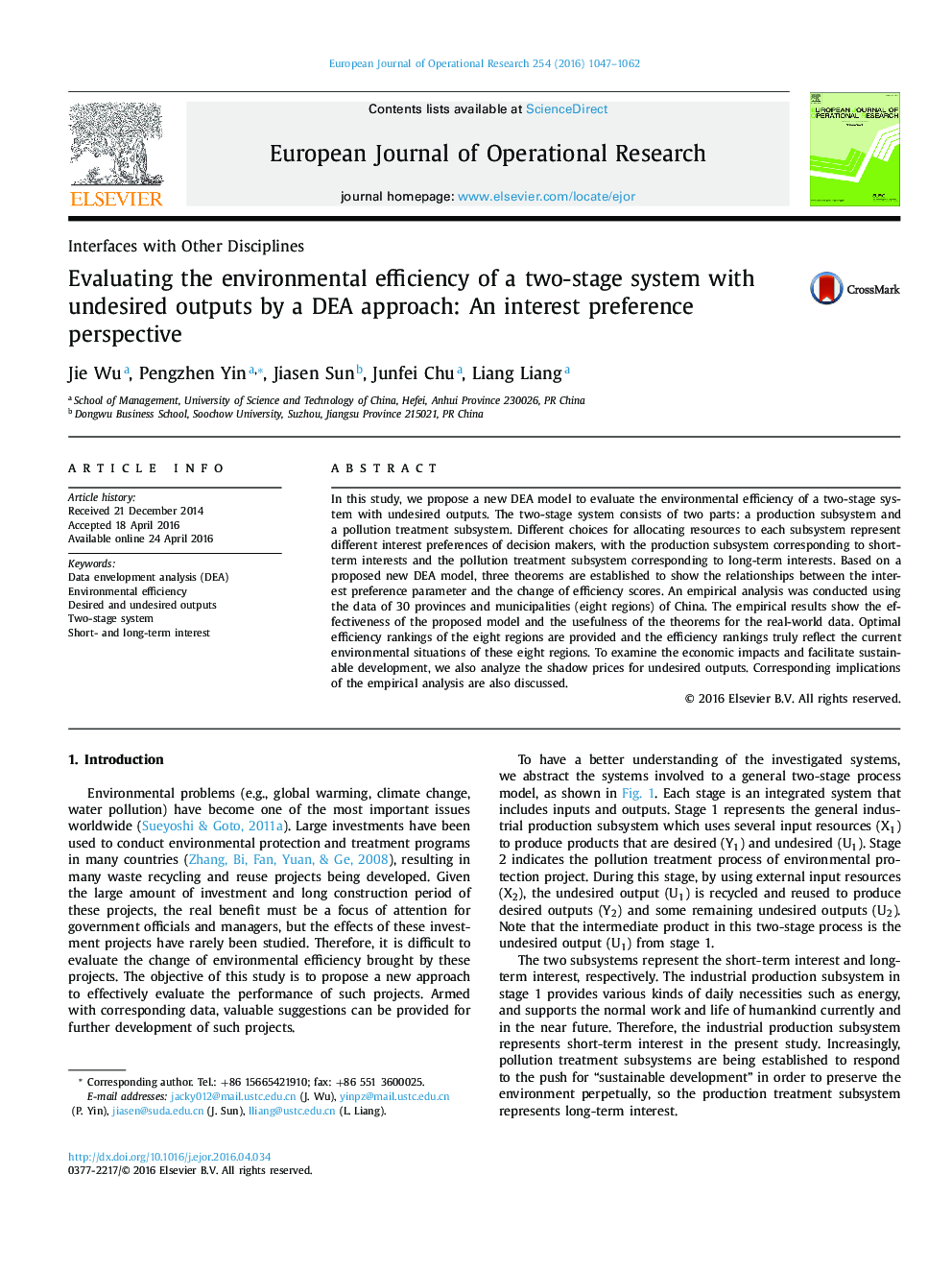| Article ID | Journal | Published Year | Pages | File Type |
|---|---|---|---|---|
| 480528 | European Journal of Operational Research | 2016 | 16 Pages |
•We propose a new DEA model to evaluate two-stage system environmental efficiency.•Our model combines individual interest preference with efficiency evaluation.•We proof the relationships between individual interest preferences and efficiencies.•Our model has a good power of evaluating the efficiency of chain system.•The empirical results truly reflect the current environmental situation in China.
In this study, we propose a new DEA model to evaluate the environmental efficiency of a two-stage system with undesired outputs. The two-stage system consists of two parts: a production subsystem and a pollution treatment subsystem. Different choices for allocating resources to each subsystem represent different interest preferences of decision makers, with the production subsystem corresponding to short-term interests and the pollution treatment subsystem corresponding to long-term interests. Based on a proposed new DEA model, three theorems are established to show the relationships between the interest preference parameter and the change of efficiency scores. An empirical analysis was conducted using the data of 30 provinces and municipalities (eight regions) of China. The empirical results show the effectiveness of the proposed model and the usefulness of the theorems for the real-world data. Optimal efficiency rankings of the eight regions are provided and the efficiency rankings truly reflect the current environmental situations of these eight regions. To examine the economic impacts and facilitate sustainable development, we also analyze the shadow prices for undesired outputs. Corresponding implications of the empirical analysis are also discussed.
